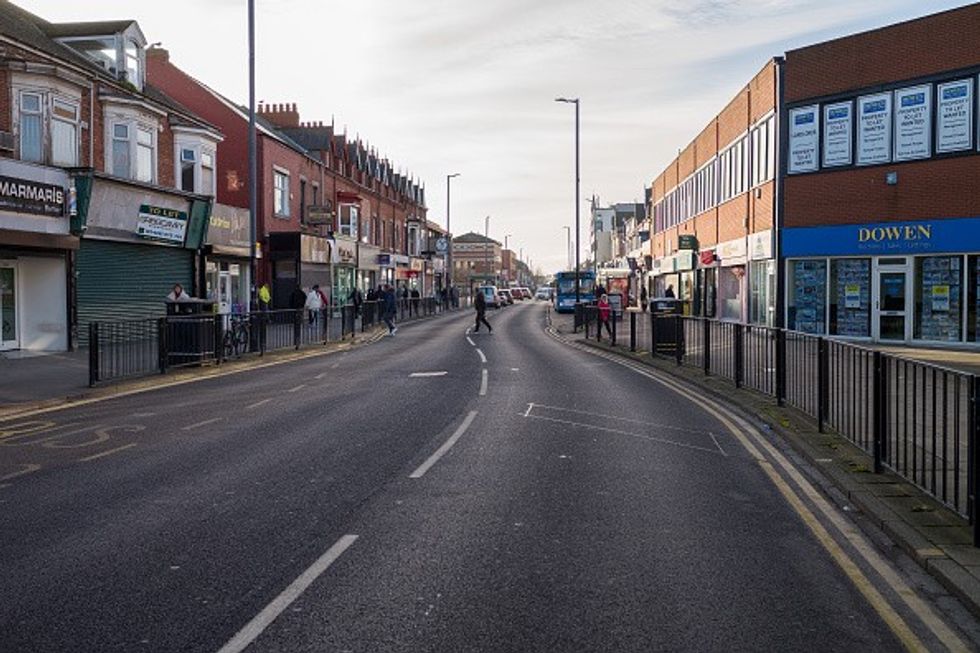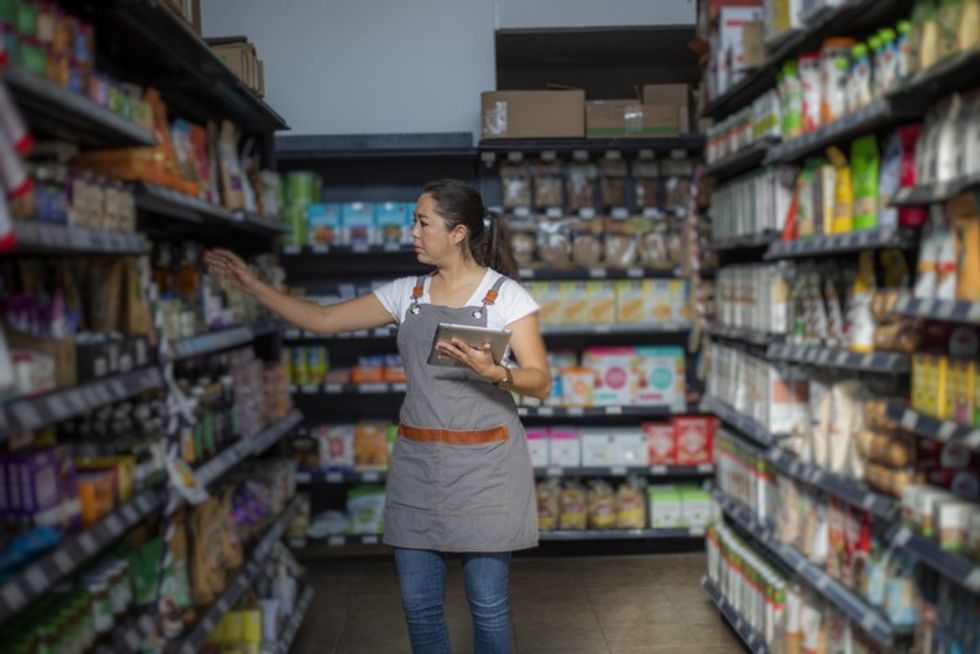Spring budget 2024 is a perfect opportunity to introduce measures to rein in rising costs in terms of business rates, employment costs, cost of providing access to cash, energy bills, and anti-crime grants, echo the collective voices from retailers and wholesalers.
Chancellor Jeremy Hunt will deliver the 2024 Spring Budget in the House of Commons on March 6. The economic backdrop against which the Spring Budget will be taking place is one of stagnant growth, diminished living standards and above target inflation.
Against this backdrop, Hunt is under growing pressure from businesses and industry leaders to deliver tax cuts and business-boosting policies. It presents a critical opportunity for the Chancellor to address the pressing concerns of retailers, small businesses, and wholesalers and it is highly speculated that that the Chancellor will leverage the timing by announcing voter-pleasing tax cuts and reforms.
Convenience stores in particular have battled through difficult times in the last few years, first during the pandemic, then the huge surge in energy costs, supply chain chaos, and most recently the hikes in inflation that have resulted in both cost of living and cost of trading crisis. ACS chief executive James Lowman states that many stores are trading close to the edge of viability and need the right conditions to invest and evolve.
Taxes and Cuts
Retailers are unanimous in their view that the level of the tax raised by business rates must come down.
Businesses are expected to face higher business rates from April with the start of the new tax year. Business rates in England remained frozen as part of last year's Autumn Statement, with 75 per cent relief still in place. In Wales, business rates are set to increase for pubs, shops, and restaurants, with 75 per cent relief reducing to 40 per cent.
The Association of Convenience Stores (ACS) is calling on the Chancellor to extend these reliefs further ahead.
In its submission to the Treasury, ACS has highlighted the importance of support provided through business rates reliefs in recent years to thousands of stores – particularly the retail, hospitality and leisure reliefs that are set to stay in place through 2024-25.
ACS has urged the Chancellor to extend these reliefs further ahead, giving businesses more certainty about their costs in the medium term.
The British Independent Retailers Association (Bira) has also called upon Hunt to address the issues facing the UK's high street when he speaks in parliament on March 6.
Bira stresses the importance of making the current retail discount permanent at 75 per cent for businesses with a rates payable value of up to £110,000 per annum. This measure, coupled with a frozen rates multiplier, can create a stable business environment and foster an atmosphere conducive to investment.

Bira is calling for the implementation of policies aimed at enhancing consumer confidence and spending. Recognising the symbiotic relationship between consumers and retailers, Bira believes that these measures will create a positive economic environment, driving growth and stability within the retail sector.
British Retail Consortium (BRC) strongly believes that there should not be any increase in business rates and the system needs “fundamental reform”.
“In the absence of measures to address this, there is one thing you can do to at least soften the blow of the uplift to the standard multiplier this April. By readjusting the figure by which rates will increase to the CPI forecast for this April, you can provide the industry with some breathing space.
“This uplift would also be more reflective of economic conditions at the time the increase comes in, rather than seven months previously,” BRC’s submission to HM Treasury, seen by Asian Trader, states.
Another change that the businesses think could boost the UK economy would be increasing the VAT threshold. This hasn’t changed since April 2017, making it possible for an increase is being considered.
With the current VAT threshold set at £85,000, many smaller businesses attempt to keep their business turnover below this to avoid registering for VAT – potentially missing out on new business growth opportunities. If the VAT threshold was raised, small businesses would have more opportunities to grow without the need to pay VAT.
The industry body has also been calling for bringing back tax-free shopping.
Bira highlights the necessity of reinstating tax-free shopping to stimulate retail activity, particularly in tourist destinations across the country. This move is expected to foster increased spending, catering to the rising number of tourists and promoting economic resilience within the retail sector.
Support and Relief
Rising energy bills is another major reason to worry.
Given the recent fall in energy prices, Bira is calling for immediate action to liberate businesses from expensive energy contracts, saying this proactive step will alleviate financial burdens on retailers, enabling them to redirect resources toward growth and sustainability.
Urging the government to address the issues critical in ensuring the continued growth and prosperity of the retail sector, Goodacre, CEO of Bira, said, that the sector’s wishes represent a collective vision for a vibrant and flourishing retail landscape.
“We believe that by addressing these crucial issues in the Spring Budget, the government can lay the groundwork for a prosperous future for independent retailers and the UK economy as a whole."
Currently, eligible businesses are able to access the Energy Bill Discount Scheme to receive a discount on wholesale prices of gas and electricity, but this scheme is expected to end on March 31. Trade association Energy UK has also called on the chancellor to address key energy issues affecting the nation – suggesting cutting taxes for businesses investing in low-carbon technology.
It is also calling for the Spring Budget to address more support options for those struggling with energy debt.
Rise in National Living Wages is another development that is expected to spike the business costs, leaving small retailers with no choice but to cut down on staff numbers. ACS’ submission warns of the challenges of persistent above inflation rises in National Living Wage rates and the impact that they are already having on businesses.

Retailers are already taking difficult decisions to reduce the overall number of paid staff hours in their stores, reducing profit margins, and ultimately reassessing the viability of the business. The future trajectory of the National Living Wage is currently uncertain as the Low Commission achieved its target this year of reaching two thirds of median earnings, with no further targets in place at present.
ACS has called on the Chancellor to maintain the two-thirds target for the foreseeable future, with the option to pause any individual rise to combat wage increases.
Raising this issue, Bira states that by April, the National Minimum Wage will have risen by almost 20 per cent in the past two years. Bira advocates for a proportional 20 per cent increase in the employer's national insurance allowance.
“This adjustment is crucial to providing essential support to businesses, helping them manage costs and maintain a balanced operational framework,” it states in its recently released Spring Wish List.
Industry body Federation of Small Businesses (FSB) has reportedly urged the Chancellor to use the Spring Budget to increase the Employment Allowance from £5,000 to £6,500. It said that doing so would enable a small employer to hire four employees on the new National Living Wage of £11.44 before having to pay the 13.8 per cent jobs tax.
This would help make it more viable for firms to maintain and extend jobs and hours, including to those currently economically inactive and others out of work, according to the business group.
The move would also help support businesses to afford the increases to the National Living Wage in April, the FSB reportedly said.
The business group says that if employers' National Insurance Contributions stay the same from April 2024, the current £5,000 will only cover three full time employees instead of the four it was originally designed to cover at the NLW of £11.44 an hour.
Another key area that retailers are looking for action on in this year’s Budget is access to cash.

For years, the options for consumers looking to take out money have been declining, with thousands of bank branches abandoning high streets and convenience stores often the only place locally where an ATM is available, states ACS.
The fees that are paid by LINK on behalf of banks to run ATMs (interchange fees) have also been falling in an attempt to reduce the costs of running the network, with the consequence being retailers either removing their free-to-use ATM or switching it to a charging model.
Highlighting this issue, ACS is urging the Chancellor to conduct an urgent review of interchange fees to ensure that they are fit for purpose and can sustain a network of ATMs that provides access to cash to every community across the UK.
ACS has also highlighted an urgent need to address the rising cost of accepting card payments.
Echoing the concern of card fee, UK’s leading retailer body BRC has also asked Hunt to hold a full review to examine whether interchange fees are fit for purpose in the UK payments landscape.
Amid inflation and lowered demand, retailers are also battling with record levels of crime rate. To save their businesses owing to insufficient police response, they are resorting to CCTV footage, and other facial recognition technology.
Expressing the alarm over the 20-year-high shoplifting rate, the Federation of Independent Retailers (the Fed) has been calling for government grants of £1,500 to help independent retailers beef up their security systems that will not only help deter crimes from being committed but will also reduce the strain on local police forces.
Wholesalers’ Wish list
It is not only local retailers but wholesalers are also getting impacted heavily by rising crime.
Highlighting this problem and acknowledging it as a “burning issue”, wholesalers body Federation of Wholesale Distributors (FWD) is calling for immediate actions to safeguard businesses and their staff.
Goods worth up to £5,000 are routinely stolen from customers in cash and carry car parks and then sold on the unrestricted black market. Earlier this year, one member suffered a loss of over £500,000 in one robbery alone. Wholesalers are targeted by criminals, primarily to access tobacco to sell on the black market, with regular incidents against wholesalers and retail customers getting reported in both depots and shops.
As responsible distributors of alcohol and tobacco products, FWD members collect millions of pounds in duty on behalf of the Treasury.

“Our principle ask is for there to be better police prioritisation of theft and robbery from customers at cash and carry premises, and crimes/attempts where violence or threat of violence is used against staff or customers. The victims of car park theft are often the small independent retailers, not large wholesalers so the impact of the financial loss affects their ability to trade profitably and provide a service for their communities,” states FWD’s submission to Treasury, seen by Asian Trader.
FWD adds that it would welcome the establishment of a standalone offence for assaulting or abusing a wholesale worker – as exists in Scotland, coupled with stricter penalties for offenders. Funding for law enforcement measures in this area must also continue.
Alcohol and tobacco fraud is costing legitimate wholesale business but also the Exchequer. Investment in this area will ultimately lead to savings for the government and help deal with serious organised crime.
Wholesalers also want a strong funding stream available for tackling alcohol fraud in the Spring Budget, saying that illegal trade in both alcohol and tobacco represents the biggest threat to the profitability of law-abiding wholesalers in the food and drink sector. Duty-avoided beers, wine and spirits cost the Exchequer £1.5billion in lost revenue in 2019-20 as criminal gangs have taken trade away from legitimate wholesalers. Recent government statistics have shown that the amount of beer sold illegally now represents 9 per cent of the total UK market.
In particular, investment in a name look-up function for Alcohol Wholesaler Registration Scheme (AWRS) will be vital in stamping out remaining fraudulent activity.
“This has already been implemented in the Isle of Man, where it has been very effective. HM Treasury should consider its introduction as part of the Alcohol Duty Review,” states FWD’s submission.
Wholesalers are also concerned that an increase in duty rates on alcohol and tobacco products will further promote the illicit trade by growing the price differential between legal and illicit products. The Exchequer currently loses £1bn to the illicit alcohol market and £1.5bn annually to the illicit tobacco market.
FWD is urging the government to consider the implications of increased duty rates for the illicit market. It is calling on the government to freeze duty rates on alcohol and tobacco products and focuses its resources on enforcement activity to remove criminals from trading in illicit and non-duty-paid goods.
Most wholesalers are currently grappling with a series of challenges posed by the Windsor Framework.
“While we support and welcome the Framework, particularly the aim of the dual-lane system to simplify trade, it remains complex and will necessitate time for full integration. This adds a degree of complexity as businesses navigate the new Framework. The introduction of "not for EU" labels for goods remaining in Northern Ireland may also increase costs for suppliers, farmers, or consumers.

“To help alleviate pressures on our members, we ask that the UK government offer resources and support to businesses to ensure they are fully compliant with the new trade rules. This can include assistance with customs procedures, documentation, and trade compliance best practices. We also ask that the government's intention to introduce a UK-wide labeling requirement on 1 October 2024 goes ahead,” says FWD.
Wholesalers are also asking the government to continue the reimbursement scheme for the tax tariff, to allow wholesalers and traders to reclaim EU duty paid on goods that can be shown not to have entered the EU.
Wholesalers are also calling to cut fuel duty by 15p per litre to bring the UK in line with Germany, France, The Netherlands, Ireland and others across Europe. The cut will bring some relief to this sector, considering the fact that wholesalers collectively operate over 7,000 delivery vehicles which make over 200,000 deliveries every week to small businesses in every postcode of the UK.
Business rates are on the minds of wholesalers too.
Wholesalers want a freeze on the multiplier in 2024-25. In the longer term, the current system, which mandates annual inflationary increases to the multiplier regardless of economic conditions or business performance, should be abolished. Instead, the burden on all parties can be lightened by reducing the multiplier to its original rate of 34.8p.
“This would improve a complex and regressive tax and create a more fertile environment for wholesale investment in communities across the UK, from improvements to existing premises to the opening of warehouses and distribution centres, strengthening the UK’s supply chain and resilience to shocks,” states FWD.
Hoping for the best
As FWD CEO James Bielby told Asian Trader, the government is still finalising what will be included in the budget, and as of yet there have not been any leaks or hints. However, given that we are in an election year, we expect the government to use their fiscal headroom and introduce further tax cuts and a freeze to the business rates multiplier.
Expectations are high from the Chancellor to introduce tax cuts and reforms that resonate with voters. As the final chance before the general elections, the Spring Budget holds significant implications for the future trajectory of the UK economy and the livelihoods of businesses- big or small.
Bira wants the government to sow the seeds for a robust and thriving retail landscape.
“Independent retailers are the lifeblood of our economy, and we believe that addressing key issues in the Spring Budget will not only support businesses but also contribute to the overall economic well-being of the nation."
With the general elections in near sight and this Budget may be the final chance for the government to lay out tax and spending plans, there are good chances that Chancellor could be tempted to pull a rabbit out of the hat to woo voters.






